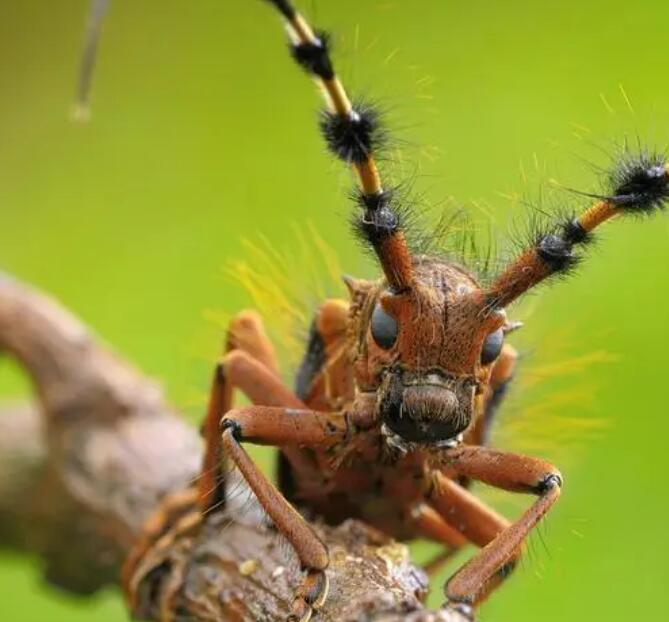Pain in modern medicine is a complex physical and psychological activity. Pain can be divided into two parts: one part is unpleasant physical pain caused by illness or stimulation; the other part is psychological pain caused by trauma.
In short, pain is a feeling that does not necessarily depend on what is happening at the time, but can also be caused by similar events experienced in the past. Recall that when we were young, we went to the hospital for injections. When the doctor had not started the injections and just put disinfectant and alcohol-iodine on your body, we already felt the pain and wanted to avoid it. This is trauma-based pain.
Don’t underestimate pain, in fact pain means a lot to us. Physiological pain allows us to understand the damage of our own body. When you feel more serious pain in your body, we need to go to the hospital for examination and timely treatment; psychological pain also has the ability to make people remember for a long time, such as when we The pain caused by picking up a hot bowl with empty hands can prevent us from doing the same behavior again and reduce the damage to our body. It can be said that without pain, the probability of human death will be greatly increased.
Since pain is a feeling, how does it come about? Friends who have seriously studied biology must still vaguely remember that sensation formation requires receptors to receive stimulation, which is then transmitted to our cerebral cortex by nerves, and finally a sensation is formed in the cerebral cortex.
Well, as invertebrate insects, the basic composition of the nervous system of insects is similar to that of humans. They have nerve cells similar in structure to ours, nerve cords similar in function to our spinal cord, and brains that are different in structure but similar in function to us.
From the perspective of receptors, insects can also sense stimuli that humans cannot, such as infrared, ultraviolet, and some odors that we cannot detect.
In terms of nervous system hardware, insects are obviously qualified, but it should be noted that just having a nervous system does not mean that they can feel pain.
We may all know that many mantises will eat the male after mating; some bugs will let the larvae eat themselves after they reproduce; and some orthoptera insects that respond slowly, even Even if they are injured, they will still use their tentacles to clean up their limbs normally, and they will not run away immediately even if someone touches the wound while feeding. Looking at it this way, it seems that insects really don’t know what pain is. Some people may say that when he was a child, he held a grasshopper, and it would obviously struggle. Yes, insects have a stress response to outside danger, but that’s not necessarily because of pain.
Some scientists believe that insects have a very short lifespan, usually tens of days to months, and they don’t have time to “remember” pain and pass this memory on to offspring. Surprisingly, other scientists have come to the opposite conclusion through a series of studies on fruit flies: the exoskeleton of fruit flies has the same pain receptors as humans, indicating that insects can indeed respond to external pain stimuli.
Scientists detected nerve signals similar to human inflammatory pain after cutting off a leg of a fruit fly; after the severed limb was completely healed, the fruit fly would care more about and protect his leg than other uninjured individuals, which is similar to what we saw earlier. The trauma-induced psychological pain sensations mentioned are very similar. There are also research institutions that have filmed experimental videos of fruit fly larvae that are stimulated with sharp objects, and then the fruit fly larvae twist their bodies to escape from the sharp objects. Of course, even if fruit flies do feel pain, that doesn’t mean other insects do too.
More than 1 million species of insects have been recorded, accounting for 2/3 of the total number of known animal species, and many insect researchers are discovering and publishing new insect species every year. Insects have so many different responses to external risks that it is impossible for them to be exactly the same.
Generally speaking, scientists have given sufficient scientific evidence for the fact that insects such as fruit flies have pain receptors and can produce some stress responses to pain. However, many of the special life phenomena of insects we mentioned earlier, such as why male mantises can be eaten without reaction, still have not been perfectly explained.
Some scientists have speculated that certain insects may have the ability to block pain-sensing nerve signaling, automatically “shielding” the different feelings of pain. If you really want to explain the pain sensation of all insects, it may require unremitting efforts and research by scientists.
While insects can respond to nociceptive stimuli, do they feel the same pain as we do? Even if they are not the same, these stimuli can still make insects have the instinct to seek advantages and avoid disadvantages, allowing insects to survive in the cruel competition of nature and become the most diverse group in the world.




GIPHY App Key not set. Please check settings